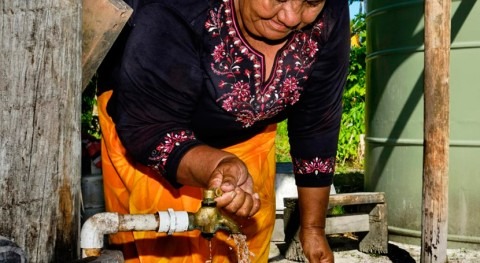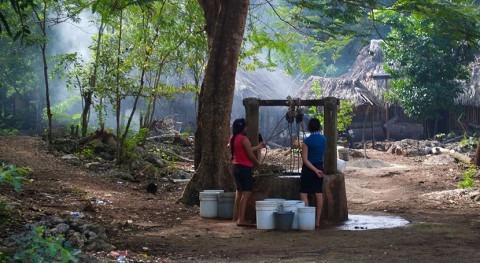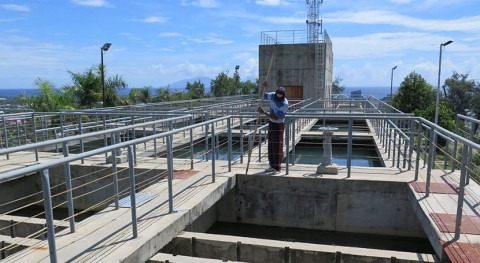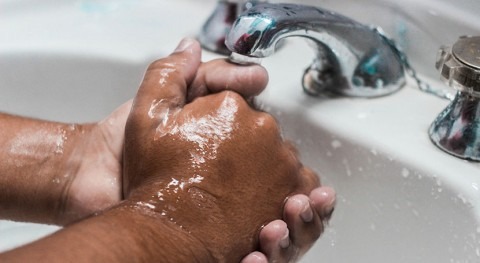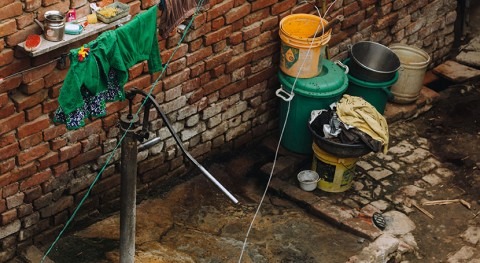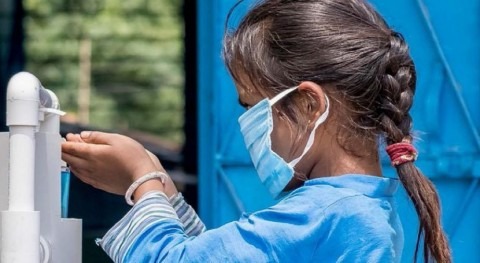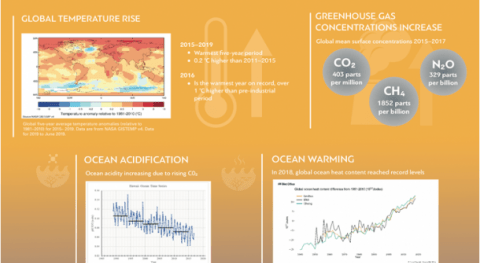Globally, women are most likely to be responsible for fetching water for households, while girls are nearly twice as likely as boys to bear the responsibility, and spend more time doing it each day, according to a new report released today by UNICEF and WHO.
Progress on household drinking water, sanitation and hygiene (WASH) 2000-2022: Special focus on gender – which provides the first in-depth analysis of gender inequalities in WASH – also notes that women and girls are more likely to feel unsafe using a toilet outside of the home and disproportionately feel the impact of lack of hygiene.
“Every step a girl takes to collect water is a step away from learning, play, and safety,” said Cecilia Sharp, UNICEF Director of WASH and CEED. “Unsafe water, toilets, and handwashing at home robs girls of their potential, compromises their well-being, and perpetuates cycles of poverty. Responding to girls’ needs in the design and implementation of WASH programmes is critical to reaching universal access to water and sanitation and achieving gender equality and empowerment.”
According to the report, globally, 1.8 billion people live in households without water supplies on the premises. Women and girls aged 15 and older are primarily responsible for water collection in 7 out of 10 such households, compared with 3 in 10 households for their male peers. Girls under 15 (7 %) are also more likely than boys under 15 (4 %) to fetch water. In most cases, women and girls make longer journeys to collect it, losing time in education, work, and leisure, and putting themselves at risk of physical injury and dangers on the way.
The report also shows that more than half a billion people still share sanitation facilities with other households, compromising women’s and girls’ privacy, dignity, and safety. For example, recent surveys from 22 countries show that among households with shared toilets, women and girls are more likely than men and boys to feel unsafe walking alone at night and face sexual harassment and other safety risks.
Further efforts are needed to ensure that progress on WASH contributes towards gender equality, including integrated gender considerations in WASH programmes
Furthermore, inadequate WASH services increase health risks for women and girls and limit their ability to safely and privately manage their periods. Among 51 countries with available data, women and adolescent girls in the poorest households and those with disabilities are the most likely to lack a private place to wash and change.
“The latest data from WHO shows a stark reality: 1.4 million lives are lost each year due to inadequate water, sanitation and hygiene,” said Dr Maria Neira, WHO Director, Environment, Climate Change and Health Department. “Women and girls not only face WASH-related infectious diseases, like diarrhoea and acute respiratory infections, they face additional health risks because they are vulnerable to harassment, violence, and injury when they have to go outside the home to haul water or just to use the toilet."
The findings go on to show that a lack of access to hygiene also disproportionately affects women and girls. In many countries, women and girls are primarily responsible for domestic chores and caring for others – including cleaning, preparing food, and looking after the sick – which likely exposes them to diseases and other risks to their health without the protection of handwashing. Additional time spent on domestic chores can also limit girls’ chances of completing secondary school and gaining employment.
Today, around 2.2 billion people – or 1 in 4 – still lack safely managed drinking water at home and 3.4 billion people – or 2 in 5 – do not have safely managed sanitation. Around 2 billion people – or 1 in 4 – cannot wash their hands with soap and water at home.
The report notes some progress towards achieving universal access to WASH. Between 2015 and 2022, household access to safely managed drinking water increased from 69 to 73 %; safely managed sanitation increased from 49 to 57 %; and basic hygiene services increased from 67 to 75 %.
But achieving the Sustainable Development Goal target for universal access to safely managed drinking water, sanitation, and basic hygiene services by 2030 will require a six-fold increase in current rates of progress for safely managed drinking water, a five-fold increase for safely managed sanitation, and a three-fold increase for basic hygiene services.
Further efforts are needed to ensure that progress on WASH contributes towards gender equality, including integrated gender considerations in WASH programmes and policies and disaggregated data collection and analysis, to inform targeted interventions that address the specific needs of women and girls and other vulnerable groups.




